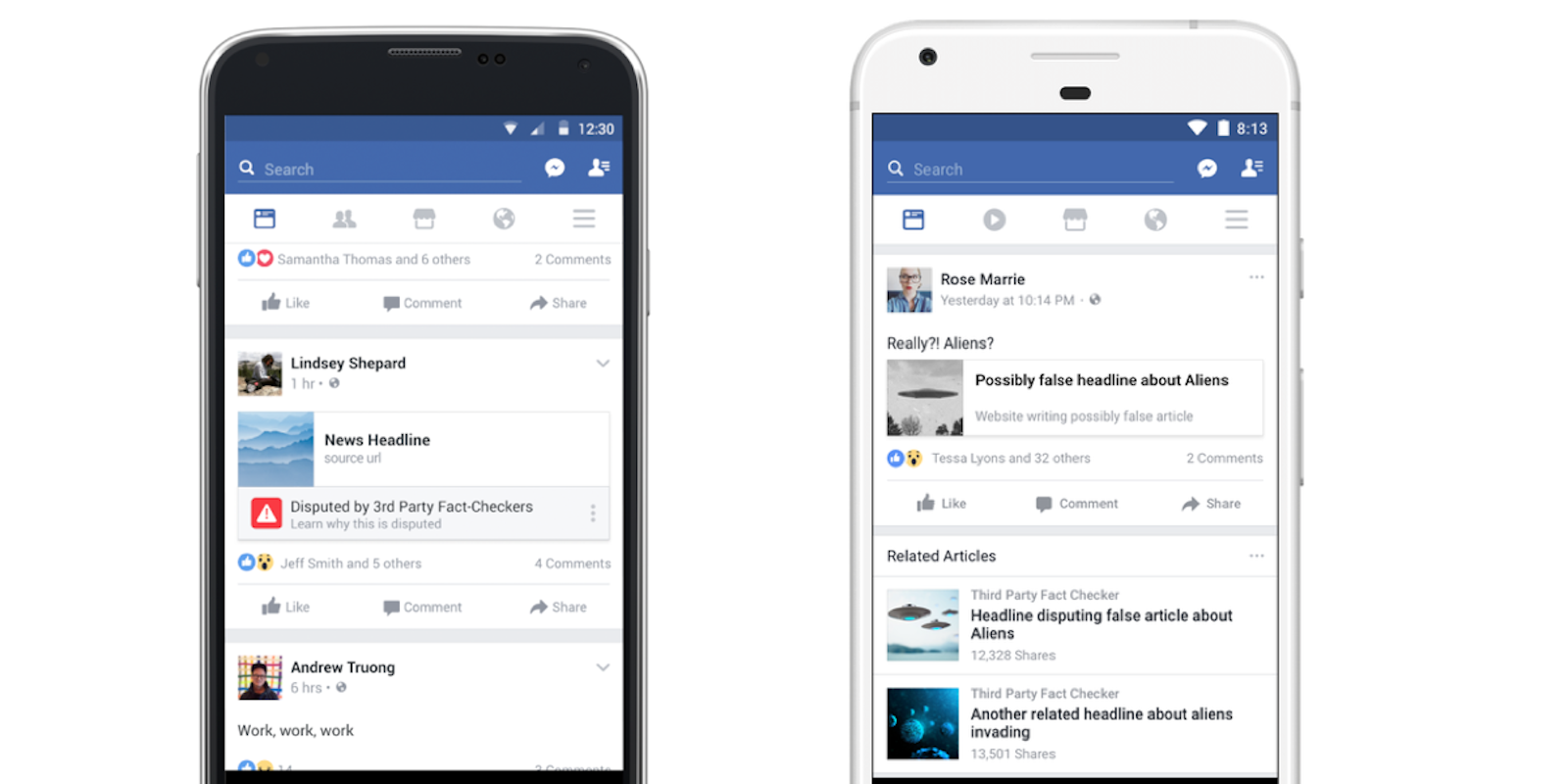Desperate to cleanse its image as an untrustworthy harbinger of misinformation—and purge its platform of said misinformation—Facebook announced that it is expanding its fact-checking efforts to include photos and videos. It’s part of a broader effort to protect election security, particularly ahead of the 2018 U.S. midterms.
According to Facebook Chief Security Officer Alex Stamos, Facebook is working on ways to address fake identities, artificially inflated audiences, and the spread of false or misleading information.
“We’re trying to develop a systematic and comprehensive approach to tackle these challenges, and then to map that approach to the needs of each country or election,” Stamos told TechCrunch.
Facebook product manager Samidh Chakrabarti said in a blog post that the company has improved its ability to identify and disable fake accounts. Using machine learning, it now eliminates more than a million such fake accounts each day, before they have the ability to do harm. It also looks for foreign pages creating bogus civic-related content. Chakrabarti said this has helped the team spot and remove “divisive or misleading memes” from going viral.
This week, Facebook’s fact-checking partners also started reviewing images and videos. The hope is that this will also help stop inaccurate memes and doctored images—like the fake photo of Parkland survivor Emma Gonzalez tearing up the Constitution—from going viral. Previously, Facebook waited for stories to be flagged before fact-checking them, but now, ahead of elections in some countries, Facebook is letting fact-checkers flag images and articles proactively.
Facebook first began its fact-checking efforts as part of its fight against false news in December 2016. Since then, the social network has partnered with third-party organizations to evaluate news spreading in the app. It has also added related articles to help Facebook users get the full picture on controversial or suspicious news links.
Facebook is already using these newest tools ahead of Italy’s election. It plans to continue their use in the U.S. midterm elections later this year.
H/T TechCrunch


